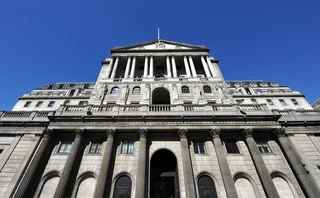
Isda to publish auction settlement supplement, launches close-out protocol
The International Swaps and Derivatives Association will publish its auction settlement supplement and open the Protocol on March 12.
Participants will be able to sign up to the protocol up until April 7, at which point it will come into effect, incorporating new definitions of credit events and rules for auction settlement into Isda's credit default swap (CDS) settlement protocol.
The supplement will incorporate CDS settlement auction terms, and will also contain terms for the Isda Determinations Committee. Precise definitions on whether a credit event has occurred, whether an auction will be held and whether a particular obligation is deliverable will be included in the supplement, although it remains unclear exactly what these definitions will be.
Concern has mounted recently among portfolio managers following Isda's proposal to remove restructuring as a credit event. Such an amendment would force hedgers to either use a standard contract - but forgo as much as 40% of the regulatory capital relief prescribed by Basel II in doing so - or, alternatively, place hedges using unconventional and less liquid contracts.
Isda is currently in the process of hardwiring into its standard documentation the auction settlement of contracts following a default or credit event of a company referenced by CDSs. In a written statement, Robert Pickel, chief executive of Isda, underlined the commitment of the industry to refine processes surrounding credit derivatives.
On Friday, Isda also launched its 2009 close-out amount protocol. The protocol allows parties to agree in advance on whether they will use the close-out valuation method to value trades in the event of a counterparty default.
Market participants benefited from the methodology following the default of Lehman Brothers last September, Isda stated. It differs from the market quotation technique by giving participants greater flexibility with respect to valuation in illiquid markets.
"The protocol permits parties to value trades in the way that is most appropriate, which greatly enhances smooth functioning of the market in testing circumstances," said Pickel in a written statement.
See also: New single-name CDS sparks hedging worries;
Isda adds buy-side members to board for first time
Only users who have a paid subscription or are part of a corporate subscription are able to print or copy content.
To access these options, along with all other subscription benefits, please contact info@risk.net or view our subscription options here: http://subscriptions.risk.net/subscribe
You are currently unable to print this content. Please contact info@risk.net to find out more.
You are currently unable to copy this content. Please contact info@risk.net to find out more.
Copyright Infopro Digital Limited. All rights reserved.
As outlined in our terms and conditions, https://www.infopro-digital.com/terms-and-conditions/subscriptions/ (point 2.4), printing is limited to a single copy.
If you would like to purchase additional rights please email info@risk.net
Copyright Infopro Digital Limited. All rights reserved.
You may share this content using our article tools. As outlined in our terms and conditions, https://www.infopro-digital.com/terms-and-conditions/subscriptions/ (clause 2.4), an Authorised User may only make one copy of the materials for their own personal use. You must also comply with the restrictions in clause 2.5.
If you would like to purchase additional rights please email info@risk.net
More on Regulation
Complex EU active account reporting could drive trades out of UK
Draft Emir rules might not force large volumes to move to EU, but will make compliance difficult
Capital neutrality key to completing Basel III, says Quarles
Former Republican Fed vice-chair thinks Hill or Bowman could help revive stalled prudential rules
Review of 2024: as markets took a breather, firms switched focus
In the absence of major crises and rules deadlines, financial firms revamped strategy, services and practices
Dora flood pitches banks against vendors
Firms ask vendors for late addendums sometimes unrelated to resiliency, requiring renegotiation
Swiss report fingers Finma on Credit Suisse capital ratio
Parliament says bank would have breached minimum requirements in 2022 without regulatory filter
‘It’s not EU’: Do government bond spreads spell eurozone break-up?
Divergence between EGB yields is in the EU’s make-up; only a shared risk architecture can reunite them
CFTC weighs third-party risk rules for CCPs
Clearing houses could be required to formally identify and monitor critical vendors
Why there is no fence in effective regulatory relationships
A chief risk officer and former bank supervisor says regulators and regulated are on the same side







